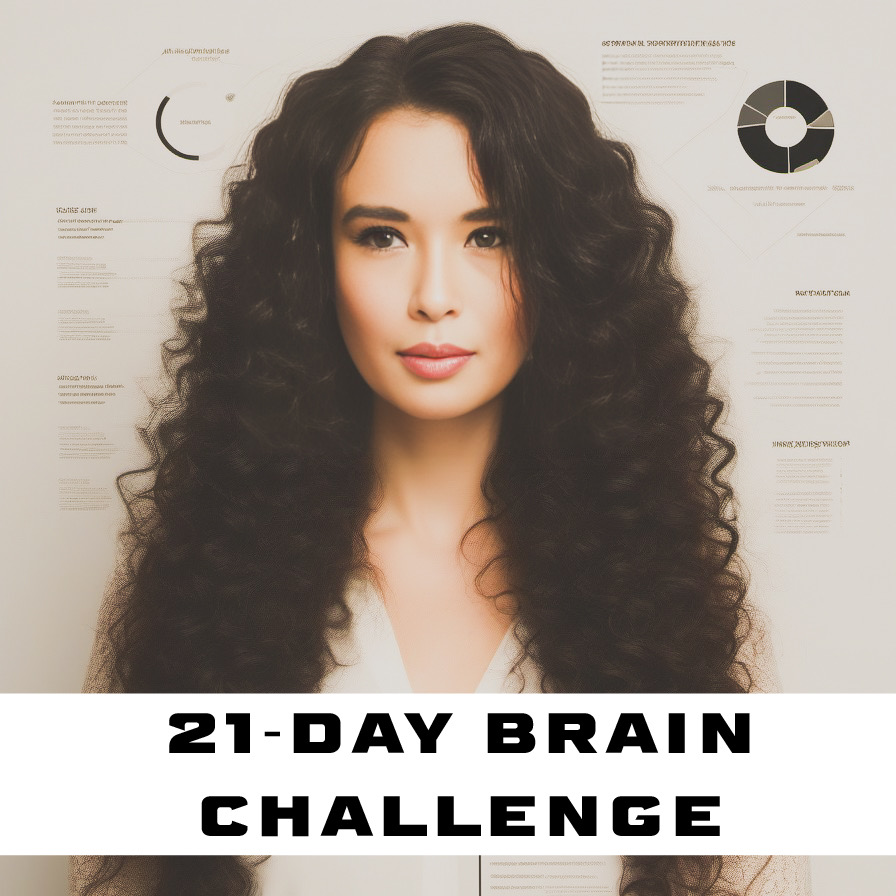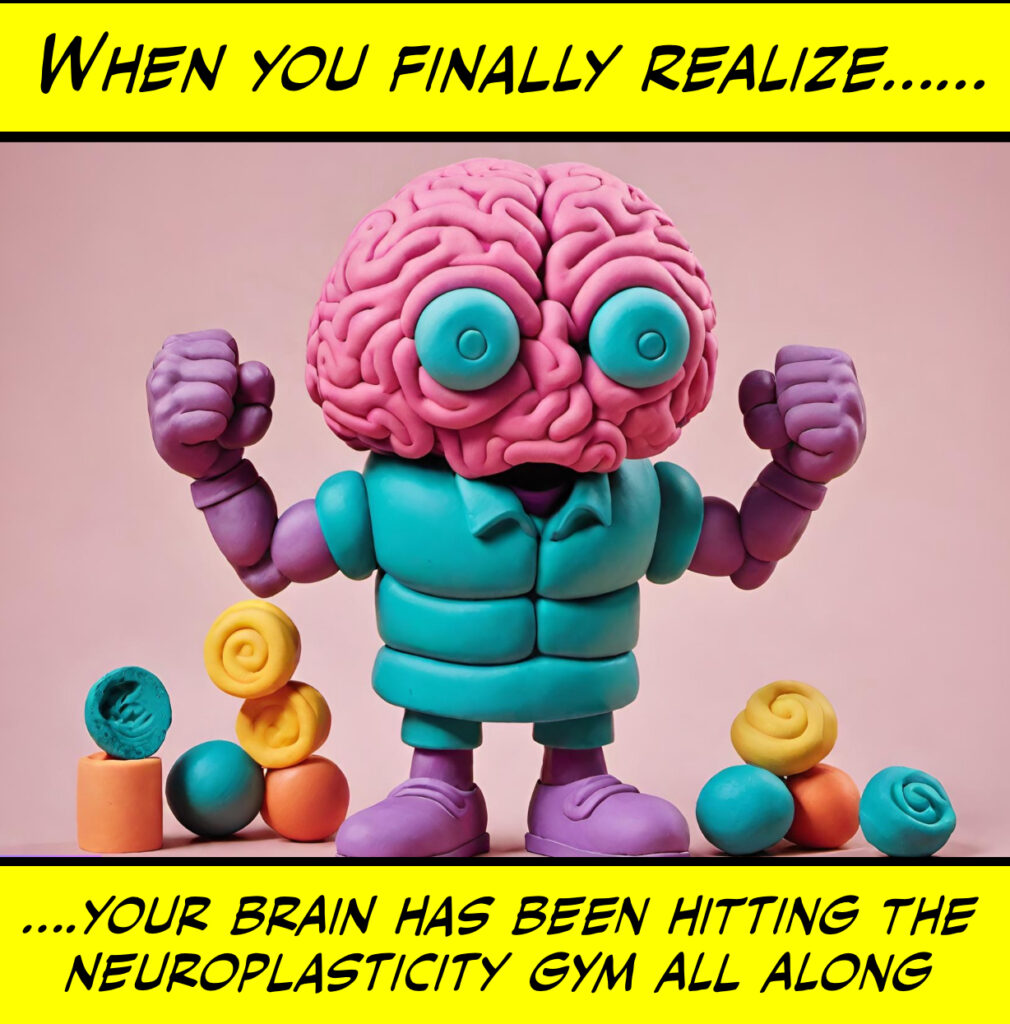Recently, I decided to embark on a personal experiment to see just how powerful our minds can be in reshaping our lives. I’ve created a 21-day brain challenge for myself—a journey dedicated to changing old patterns and habits, letting go of what no longer serves me, and building a life centered on emotional peace, self-love, and inner strength.
This 21-day challenge is more than a routine; it’s a transformative journey of self-discovery and independence. Each day, I’m dedicating time to reflect on my choices, reconnect with my goals, and strengthen my self-worth. This isn’t just about breaking habits; it’s about rewiring my brain to embrace a new way of being—one where I prioritize peace, set healthy boundaries, and draw strength from within.
By the end of these 21 days, I hope to have laid a renewed foundation for myself, one built on clarity, self-compassion, and independence. This challenge is an opportunity to prove that the love and fulfillment I seek don’t need to come from external sources; they can grow from within me.

Days 1–7: Breaking Old Patterns and Developing Awareness
The first week of the challenge focuses on understanding and releasing old habits and relationship patterns that no longer serve me. From a neurobiological perspective, breaking habits requires rewiring the brain’s neural pathways—a process called “neuroplasticity.” According to Dr. Norman Doidge, author of The Brain That Changes Itself, the brain has a remarkable ability to reshape itself, even in adulthood. Old habits, especially those rooted in relationships, create strong neural connections. To move beyond them, I need to consistently engage in new thoughts and behaviors, signaling to my brain that it’s time for change.
Each day during this phase, I’m engaging in reflective exercises that help me understand past relationships and habitual responses. By examining these patterns, I’m beginning to recognize automatic reactions that don’t align with who I want to be. Journaling and mindfulness practices strengthen my self-awareness and engage the brain’s prefrontal cortex—responsible for decision-making and emotional regulation (LeDoux, 2000). This process encourages me to form healthier patterns while gradually lessening old, reflexive responses.

Days 8–14: Fostering Self-Worth and Emotional Stability
The second phase of the journey centers on self-worth and emotional regulation. To build a life grounded in self-love, it’s essential to develop an internal locus of control—a sense that I am responsible for my own fulfillment and happiness. This week’s practices include daily affirmations, gratitude exercises, and goal-setting, all of which boost dopamine and serotonin levels, enhancing mood and resilience (Southwick & Charney, 2018).
This phase also encourages practicing self-compassion. According to Dr. Kristin Neff, self-compassion involves treating oneself with kindness, especially during challenging moments. Neurobiologically, self-compassion activates areas of the brain associated with empathy and emotional processing (Longe et al., 2010). By building self-compassion, I’m learning to be gentler with myself, reducing self-criticism and allowing for healthier responses to difficult emotions.
Days 15–21: Establishing New Habits and Creating Inner Stability
The final phase of the challenge focuses on creating habits that foster independence and emotional stability. This week’s routines are designed to reinforce organization, personal values, and self-care practices. As I repeat these new behaviors, the brain’s basal ganglia—which play a role in habit formation—begin to solidify them (Graybiel, 2008). This process of reinforcing positive habits enables me to respond more naturally to challenges and reduces the need for external validation.
In the context of letting go of relationships, this phase emphasizes that meaningful connections don’t require external validation. By prioritizing my inner peace and independence, I’m creating a shift in resilience that supports healthier relationships in the future—those grounded in mutual respect rather than dependency.

Neurobiological Benefits of Embracing Solitude and Personal Growth
Solitude and self-reflection are powerful tools for fostering brain health and emotional resilience. Dr. Sara Lazar, a neuroscientist, has found that mindfulness practices can increase gray matter density in areas related to self-awareness and empathy. This growth enhances my ability to remain emotionally centered. Solitude also allows the default mode network (DMN)—a brain network active during self-reflection—to support personal insights and long-term planning (Buckner et al., 2008).
This 21-day journey strengthens my capacity for emotional regulation, reduces stress, and builds self-worth. By incorporating these daily practices, I’m creating a foundation of inner peace, stability, and self-respect.
Moving Forward with Self-Love and Clarity
The journey of these 21 days is an invitation to connect deeply with myself, to shed the habits and patterns that no longer serve me, and to embrace a renewed sense of clarity and strength. As each day passes, I am reminded that I am capable of creating the joy, love, and stability I seek, from within.
This challenge is a testament to the power of intentionality and self-compassion in shaping the life we deserve. By the end of this journey, I know I will be closer to becoming the best version of myself, equipped with the tools to maintain peace, pursue my dreams, and build the fulfilling life I envision.
References
• Buckner, R. L., Andrews-Hanna, J. R., & Schacter, D. L. (2008). The Brain’s Default Network: Anatomy, Function, and Relevance to Disease. Annals of the New York Academy of Sciences, 1124(1), 1–38.
• Doidge, N. (2007). The Brain That Changes Itself: Stories of Personal Triumph from the Frontiers of Brain Science. Viking Press.
• Graybiel, A. M. (2008). Habits, Rituals, and the Evaluative Brain. Annual Review of Neuroscience, 31, 359–387.
• Lazar, S. W., Kerr, C. E., Wasserman, R. H., Gray, J. R., Greve, D. N., Treadway, M. T., & Fischl, B. (2005). Meditation Experience Is Associated with Increased Cortical Thickness. NeuroReport, 16(17), 1893–1897.
• LeDoux, J. (2000). Emotion Circuits in the Brain. Annual Review of Neuroscience, 23, 155–184.
• Longe, O., Maratos, F. A., Gilbert, P., Evans, G., Volker, F., Rockliff, H., & Rippon, G. (2010). Having a Word with Yourself: Neural Correlates of Self-criticism and Self-reassurance. NeuroImage, 49(2), 1849–1856.
• Neff, K. (2011). Self-Compassion: The Proven Power of Being Kind to Yourself. William Morrow.
• Southwick, S. M., & Charney, D. S. (2018). Resilience: The Science of Mastering Life’s Greatest Challenges. Cambridge University Press.

This journey is my way of reclaiming my life and setting it on a course built on inner strength, love, and clarity. Each day is a step forward in creating a foundation of peace and joy that only I can provide for myself.


